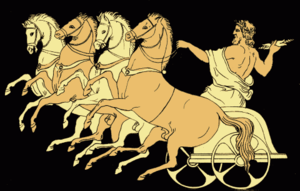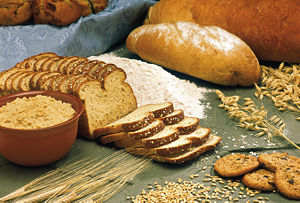Hello Sarah, please
tell us about you, as a writer.
I have always liked Science-fiction and Fantasy, and
write primarily to entertain myself. I admit this does result in the creation
of many things that I never finish when I see that they take too much personal
knowledge I am not willing to share in order to be fully understood, but I
figure that if I could not be a fan of my own work, there is little point in
spending the amount of time required so I feel like my story is fully told.
Your latest book is ‘The
Speed of Darkness’; perhaps you’d you give us some insight into it in a few
sentences?
‘The Speed of Darkness’ –my combination of Sci-fi and
werewolves. The first book I’ve ever written fully enough that I was comfortable
with pointing to a spot and saying: The End.
Excerpt-
Sam closed
and locked his door. With clear disgust on his face, he addressed Nigel. “Nice,” he said sarcastically. “Nice to know
you could have just gotten away easily when I jumped in to help you.”
Nigel fidgeted
uncomfortably as he tried to keep himself from meeting Sam’s gaze, “It doesn’t
work like-“
“You certainly were
able to do it at will just now!” Sam yelled, stomping up to him.
“But Bart-“, Nigel
began, gesturing as he spoke.
“Your psycho friends!”
Sam thundered in anger as he raised his hands above his head. “Thanks! Can’t
forget those two freaks are now after me too. All because I didn’t want to just
stand by and watch them cut up some little fruit like you on tape!
“Now I find out that’s
what you wanted.” With a sickened look he folded his arms and stepped away from
Nigel, who simply looked confused.
“What..?” Nigel called
after Sam, as he looked helplessly at the back of the other man, “I never
want-“
“Oh, come on,” Sam said
derisively, turning around and grabbing Nigel’s shoulder. “Why would someone,
who can –FOR REAL- just zip away, stand around and wait for his buddies come at him with a knife for a
video?”
Nigel finally met Sam’s
eyes and said, (as if it explained everything)”Bart had a flashlight.”
How did you come to
write this particular book?
A couple of silly ideas knocking around in my head started to build
themselves into a story; as I wasn’t doing much else at the time, I wrote it
down until I got sick of it and filed it away for 2-3 years. When I pulled it
back out and read it again, I liked it just as much as ever.
Do you have a
favourite character from the book? If so, who and why this particular one?
I like Nigel Hunter, my mad scientist who started
experimenting on himself when others refuse to let him test on animals any
more. When I was trying to decide how he would react to different situations, I
let him do what I would like to do, but wouldn’t really dare to.
Where can people buy
your books?
Both are here:
and you can get 1 chapter of the other FREE.
What qualities does a
writer need to be successful?
Imagination and determination
What’s your working
method?
Do nothing until after lunch, Relax on weekends;
don’t get trapped within your own book.
Finish EVERYTHING.
Don’t ever delete anything; just file it away where you can
get back to it when you’re no longer sick of it.
Yes, I realize the last two rules are currently eating up way
too much space on my computer, but hey :P my crazy laptop has a multi-gigabyte
hard-drive.
What’s the single
biggest mistake made by beginner writers?
Deleting anything. There is nothing worse than suddenly
having the idea to fix where your story flagged out, to only find it’s no
longer on your computer when you go to fix it.
To what extent are
grammar and spelling important in writing?
If you don’t write correctly, others will have a
difficult time trying to determine what you mean.
How much do you
revise your MS before sending it off?
I go through it as many times as it takes for me to be
able to go through it without making any changes at all.
As a writer of
Sci-fi, to what extent do you think genre is useful in the publishing world?
You have to know the name of the genre that your intended
audience will look for or you might prevent your future fans from ever finding
your work.
Many authors see
marketing as a bind. What's your opinion on this, and how do you deal with it?
I’m somewhat iffy on this, I know that without some
marketing no one will ever find my work; but because I’m so attached to what I
write, I would almost rather have that
no one ever see it before I am tempted to change it for the sake of boosting
sales.
What sort of
displacement activities keep you from writing?
Reading, movies, and video games
What support, if any,
do you receive from family and friends, writing group, or dedicated
professionals?
As I am not working any ‘real’ job I live with my dad and
stepmother. I receive emotional support from my mother, grandfather, 2 sisters,
brother, stepsister, and a good sized list of friends and family online.
Is presentation of
the MS as important as agents and publishers suggest?
Save a couple random short stories I’m only self-published, so
I wouldn’t actually know.
How long does it take
you to write a novel?
The actual writing is probably only a couple of months,
but to let the ideas accumulate might take years.
Who or what inspires
your writing?
Artwork, real life, TV
Basically anything and
everything
If there’s a single
aspect of writing you find frustrating, what is it?
Pace; if I stick to writing too much I start to hate it,
if I take too much time off I lose the flow and cant continue what I was
working on.
Is there a particular
feature of writing that you really enjoy?
I like having the control to make exactly what I want to
happen, it’s why much of what I write becomes too silly or embarrassing to ever
finish.
Do you believe
creative writing is a natural gift or an acquired skill?
I think it is a common natural talent that must be
practiced to enhance to a worthwhile skill level like running or swimming.
What are you writing
now?
I have a couple of modern-fantasy ideas chasing each
other round my head, but the question has startled them into hiding to the
point where I’m at a loss to describe what the story’s even about. Won’t have a
character named Sam though. I’ve had far too many of those.
Do you have a website
or blog where readers can visit?
you can get to my blog
off of there
Given unlimited
resources, where would you do your writing?
Right at my desk where I’m sitting right now... Somewhere
new would just distract me, prevent me from writing at all.
Where do you actually
write?
A little desk in the corner of my room on a happy little 15
acre donkey ranch in central Texas. Within easy screaming distance of the
cockatiel that has something to say about everything I do...
 Image via Wikipedia
Image via Wikipedia




































